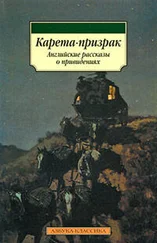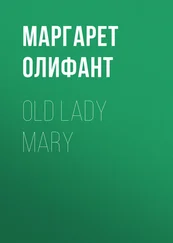Маргарет Олифант - Ombra
Здесь есть возможность читать онлайн «Маргарет Олифант - Ombra» — ознакомительный отрывок электронной книги совершенно бесплатно, а после прочтения отрывка купить полную версию. В некоторых случаях можно слушать аудио, скачать через торрент в формате fb2 и присутствует краткое содержание. Жанр: foreign_prose, literature_19, foreign_antique, на английском языке. Описание произведения, (предисловие) а так же отзывы посетителей доступны на портале библиотеки ЛибКат.
- Название:Ombra
- Автор:
- Жанр:
- Год:неизвестен
- ISBN:нет данных
- Рейтинг книги:3 / 5. Голосов: 1
-
Избранное:Добавить в избранное
- Отзывы:
-
Ваша оценка:
- 60
- 1
- 2
- 3
- 4
- 5
Ombra: краткое содержание, описание и аннотация
Предлагаем к чтению аннотацию, описание, краткое содержание или предисловие (зависит от того, что написал сам автор книги «Ombra»). Если вы не нашли необходимую информацию о книге — напишите в комментариях, мы постараемся отыскать её.
Ombra — читать онлайн ознакомительный отрывок
Ниже представлен текст книги, разбитый по страницам. Система сохранения места последней прочитанной страницы, позволяет с удобством читать онлайн бесплатно книгу «Ombra», без необходимости каждый раз заново искать на чём Вы остановились. Поставьте закладку, и сможете в любой момент перейти на страницу, на которой закончили чтение.
Интервал:
Закладка:
‘What it is to be a boy!’ she said; ‘they go where they like, these two, and arrange their lives as they please. What a fuss everybody makes about them; and yet they are commonplace enough. If they were girls like us, how little any one would care–’
‘My dear, Mr. Eldridge will be a great landed proprietor, and have a great deal in his power,’ said Mrs. Anderson.
‘Because he happens to have been born Sir Herbert’s son; no thanks to him ,’ said Ombra, with disdain. ‘And most likely, when he is a great landed proprietor he will do nothing worth noticing. The other is more interesting to me; he at least has his own way to make.’
‘I wonder what poor Bertie will do?’ said Kate, with her grandmother air. ‘I should not like to see him a clergyman. What Ombra says is very true, auntie. When one is a great Squire, you know, one can’t help one’s self; one’s life is all settled before one is born. But when one can choose what to be!– For my part,’ said Kate, with great gravity, ‘I am anxious about Bertie, too. I gave him all the advice I could—but I am not sure that he is the sort of boy to take advice.’
‘He is older than you are, my love, and perhaps he may think he knows better,’ said Mrs. Anderson with a smile.
‘But that would be a mistake,’ said Kate. ‘Boys have so many things to do, they have no time to think. And then they don’t consider things as we do; and besides–’ But here Kate paused, doubting the wisdom of further explanations. What she had meant to say was that, having no thinking to do for herself, her own position being settled and established beyond the reach of fate, she had the more time to give to the concerns of her neighbours. But it occurred to her that Ombra had scorned Bertie Eldridge’s position, and might scorn hers also, and she held her peace.
‘Besides, there is always a fuss made about them, as if they were better than other people. Don’t let us talk of them any more; I am sick of the subject,’ said Ombra, withdrawing into a book. The others made no objection; they acquiesced with a calmness which perhaps scarcely satisfied Ombra. Mrs. Anderson declared openly that she missed the visitors much; and Kate avowed, without hesitation, that the boys were fun, and she was sorry that they were gone. But the chances are that it was Ombra who missed them most, though she professed to be rather glad than otherwise. ‘They were a nuisance, interrupting one whatever one was doing. Boys at that age always are a nuisance,’ she said, with an air of severity, and she returned to all her occupations with an immense deal of seriousness.
But this disturbance of their quiet affected her in reality much more than it affected her companions—the very earnestnest of her resumed duties testified to this. She was on the edge of personal life, wondering and already longing to taste its excitements and troubles; and everything that disturbed the peaceful routine felt like that life which was surely coming, and stirred her pulses. It was like the first creeping up of the tide about the boat which is destined to live upon the waves; not enough yet to float the little vessel off from the stays which hold it, but enough to rock and stir it with prophetic sensation of the fuller flood to come.
Ombra was ‘viewy,’ to use a word which has become well-nigh obsolete. She was full of opinions and speculations, which she called thought; a little temper, a good deal of unconscious egotism, and a reflective disposition, united to make her what is called, a ‘thoughtful girl.’ She mused upon herself, and upon the few varieties of human life she knew, and upon the world, and all its accidents and misunderstandings, as she had seen them, and upon the subjects which she read about. But partly her youth, and partly her character, made her thoughts like the observations of a traveller newly entered into a strange country, and feeling himself capable, as superficial travellers often are, to lay bare its character, and fathom all its problems at a glance. Other people were, to this young philosopher, as foreigners are to the inexperienced traveller. She was very curious about them, and marked their external peculiarities with sufficient quickness; but she had not imagination enough to feel for them or with them, or to see their life from their own point of view. Her own standing-point was the only one in the world to her. She could judge others only by herself.
Curiously enough, however, with this want of sympathetic imagination there was combined a good deal of fancy. Ombra had written little stories from her earliest youth. She had a literary turn. At this period of her life, when she was nearly eighteen, and the world was full of wonders and delightful mysteries to her, she wrote a great deal, sometimes in verse, sometimes in prose, and now and then asked herself whether it was not genius which inspired her. Some of her poems, as she called them, had been printed in little religious magazines and newspapers—for Ombra’s muse was as yet highly religious. She had every reason to believe herself one of the stars that shine unseen—a creature superior to the ordinary run of humanity. She read more than any one she knew, and thought, or believed that she thought, deeply on a great many subjects. And one of these subjects naturally was that of the position of women. She was girl enough, and had enough of nature in her, to enjoy the momentary brightness of the firmament which the two Berties had brought. She liked the movement and commotion as much as the others did—the walks, the little parties, the expeditions, and even the games; and she felt the absence of these little excitements when they came to an end. And thereupon she set herself to reflect upon them. She carried her little portfolio up to a rustic seat which had been made on the cliff, sheltered by some ledges of rock, and covered with flowers and bushes, and set herself to think. And here her thoughts took that turn which is so natural, yet so hackneyed and conventional. No one would, in reality, have been less disposed than Ombra to give up a woman’s—a lady’s privileges. To go forth into the world unattended, without the shield and guard of honour, which her semi-foreign education made doubly necessary to her, would have seemed to the girl the utmost misery of desolation. She would have resented the need as a wrong done her by fate. But nevertheless she sat up in her rocky bower, and looked over the blue sea, and the white headlands, and said to herself, bitterly, what a different lot had fallen to these two Berties from that which was her own. They could go where they liked, society imposed no restraints upon them; when they were tired of one place, they could pass on to another. Heaven and earth was moved for their education, to make everything known to them, to rifle all the old treasure-houses, to communicate to them every discovery which human wisdom had ever made. And for what slight creatures were all these pains taken; boys upon whom she looked down in the fuller development of her womanhood, feeling them ever so much younger than she was, less serious in their ideas, less able to do anything worth living for! It seemed to Ombra, at that moment, that there was in herself a power such as none of ‘these boys’ had a conception of—genius, the divinest thing in humanity! But that which would have been fostered and cultivated in them, would be quenched, or at least hampered and kept down in her. ‘For I am only a woman!’ said Ombra, with a swelling heart.
All this was perfectly natural; and, at the same time, it was quite conventional. It was a little overflow of that depression after a feast, that reaction of excitement, which makes every human creature blaspheme in one way or other. The sound of Kate’s voice, singing as she came up the little path to the cliff, made her cousin angry, in this state of her mind and nerves. Here was a girl no better than the boys, a creature without thought, who neither desired a high destiny, nor could understand what it meant.
Читать дальшеИнтервал:
Закладка:
Похожие книги на «Ombra»
Представляем Вашему вниманию похожие книги на «Ombra» списком для выбора. Мы отобрали схожую по названию и смыслу литературу в надежде предоставить читателям больше вариантов отыскать новые, интересные, ещё непрочитанные произведения.
Обсуждение, отзывы о книге «Ombra» и просто собственные мнения читателей. Оставьте ваши комментарии, напишите, что Вы думаете о произведении, его смысле или главных героях. Укажите что конкретно понравилось, а что нет, и почему Вы так считаете.












